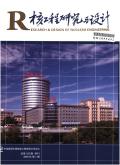Study on the Interaction Between Safety-Related and Non Safety-Related Items in the Component Cooling Water System Room of the Qinshan Nuclear Power Plant in the Earthquake Condition
引用次数: 0
Abstract
Safety-related items in nuclear power plants are now generally placed separately from the non-safety-related items, but it was not strictly required before. Therefore, it is very important to study whether the non-safety-related items will affect the safety-related items when they are dropped down in an earthquake situation, which determines the safety of a nuclear power plant and its future life extension applications. This research was based on the cooling water system room with the safety and non-safety related items installed together, as an example to study whether the non-safety-related items such as vent pipes and DN50 fire fighting pipes arranged above will damage the DN300 pipes and valves arranged below when earthquakes occur. For the experiments, the relative positions of objects in the room was reproduced by 1: 1. The pressure-holding performance of the pipe was used as a criterion for the damage. The research results of the experiments show that when the 10-meter-long DN50 pipe was dropped from the position of 8 meters height and the 8-meter-long vent dropped from position of 3.6 meters height, they do not affect the integrity of the DN300 valve and pipe below. After the experiment, pressure drop in two hours for the pipe is less than 0.1%. The main body of the valve does not fail neither. The numerical simulation study also shows that there is no failure phenomenon in the simulation as well. Compared with the test results, the impact acceleration and the vent deformation both have the same trend.秦山核电站部件冷却水系统机房地震条件下安全与非安全相互作用研究
核电站的安全相关项目现在一般与非安全相关项目分开放置,但以前并没有严格的要求。因此,研究非安全相关物品在地震情况下掉落时是否会影响到安全相关物品,这决定了核电站的安全性和未来的延寿应用,具有十分重要的意义。本研究以安全与非安全相关物品同时安装的冷却水系统房间为例,研究地震发生时,上方布置的排风管、DN50消防管等非安全相关物品是否会损坏下方布置的DN300管道及阀门。在实验中,房间内物体的相对位置按1:1的比例再现。以管道的保压性能作为损伤的判据。实验研究结果表明,当10米长的DN50管道从8米高处落下,8米长的排气孔从3.6米高处落下时,不影响下面DN300阀门和管道的完整性。经实验,管道在两小时内的压降小于0.1%。阀门的主体也不会发生故障。数值模拟研究也表明,在模拟过程中也没有出现破坏现象。与试验结果相比,冲击加速度和喷口变形具有相同的变化趋势。
本文章由计算机程序翻译,如有差异,请以英文原文为准。
求助全文
约1分钟内获得全文
求助全文

 求助内容:
求助内容: 应助结果提醒方式:
应助结果提醒方式:


